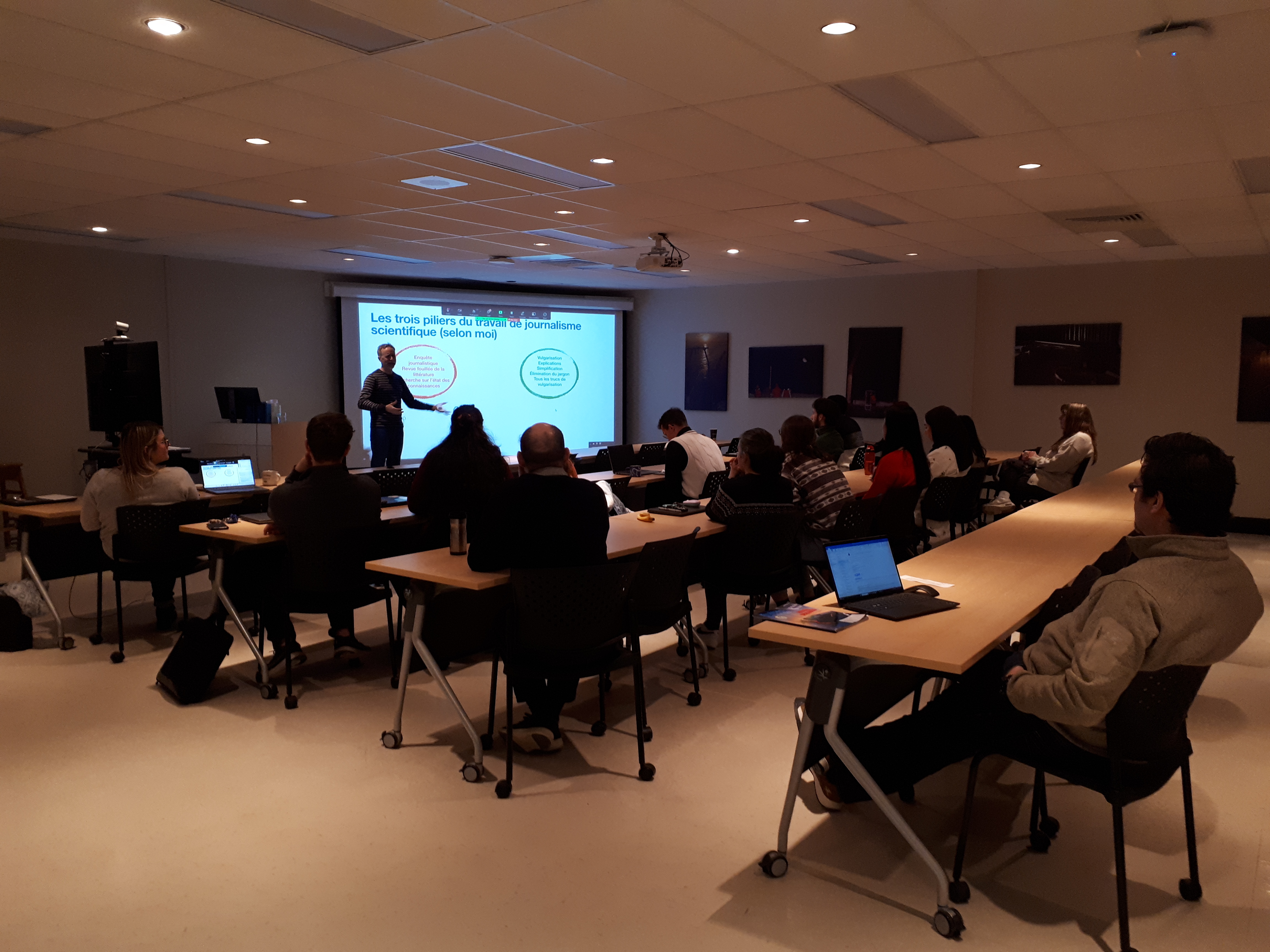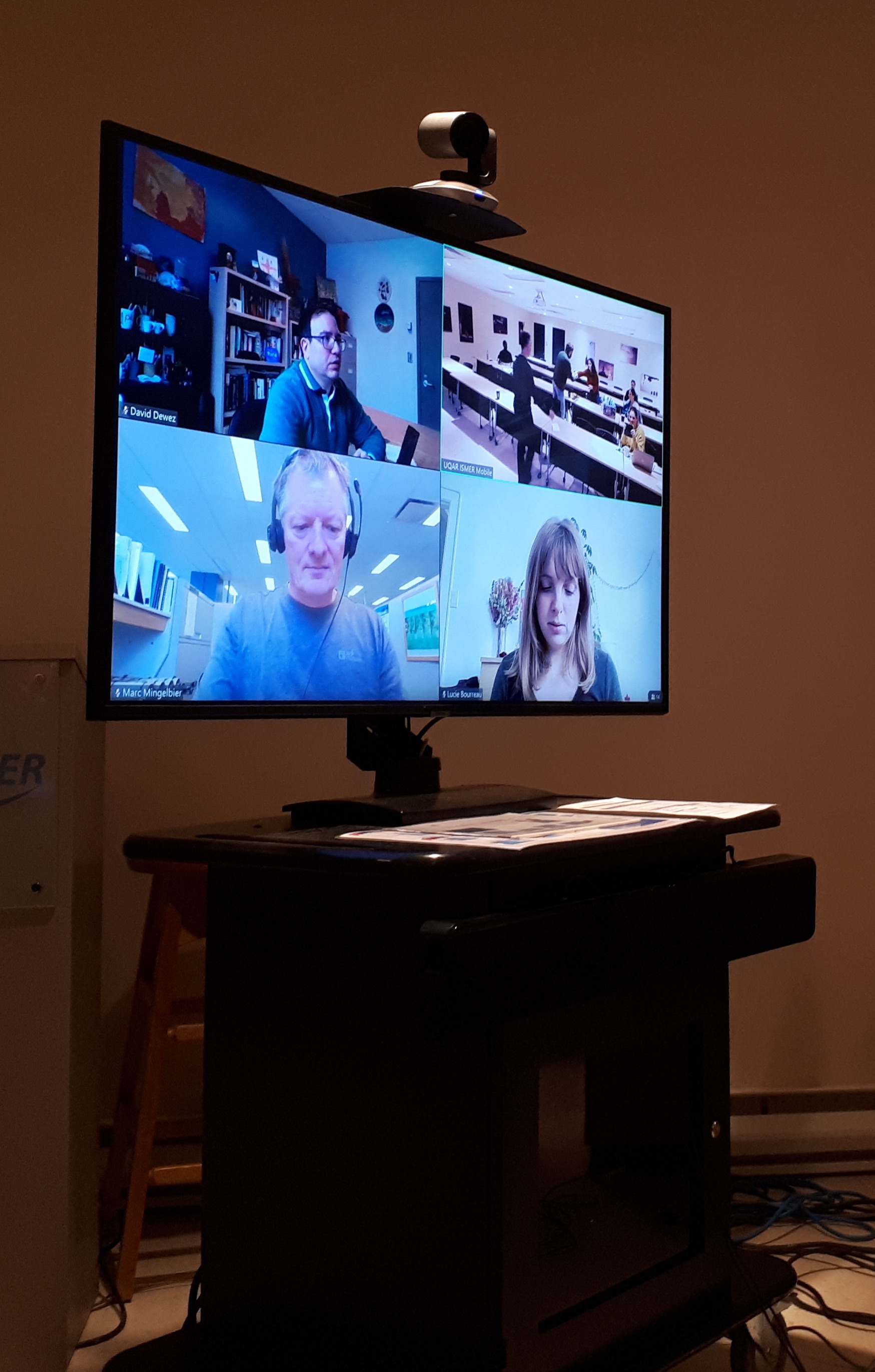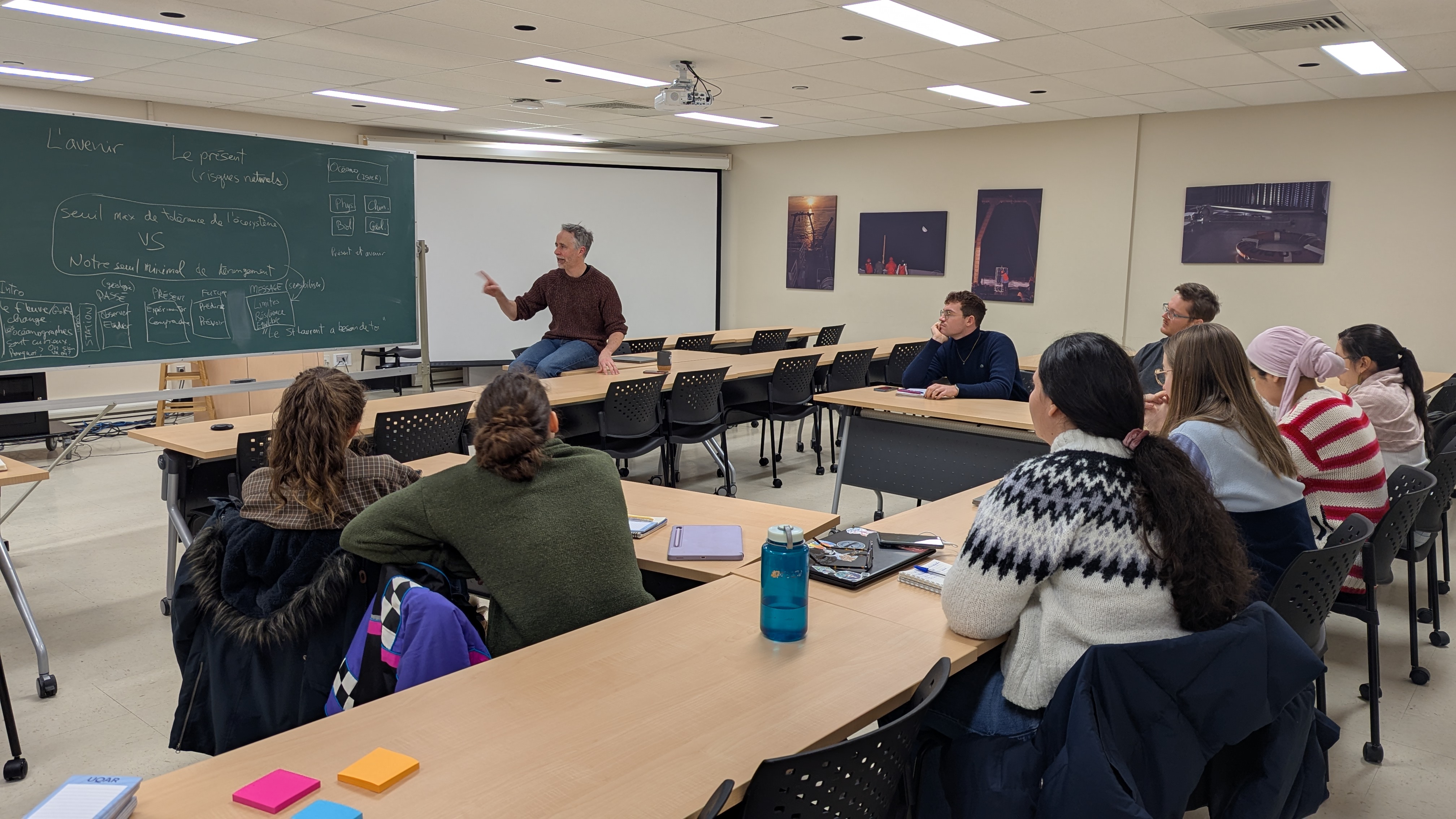A major project to popularise and share science with the general public is under way at the Institut des sciences de la mer de Rimouski, for the Pointe-au-Père aquaculture station.
Thanks to the initiative of our doctoral student member in oceanography, Maëla Le Ménec, Québec-Océan and Ressources Aquatiques Québec (RAQ) have launched a project to popularise science for the general public. Involving students from both groups at ISMER, the project will create and design panels explaining the work carried out at the Pointe-au-Père aquaculture station (UQAR) and oceanography. These panels will be permanently displayed in front of the station, for the purposes of education and scientific communication for visitors to the area and to the Pointe-au-Père maritime historic site.
On
15 January, Québec-Océan and RAQ offered to all their members free workshop in
The art of talking about science to the public. A total of 50 participants - students, researchers and research professionals - benefited from the advice and expertise of
Joël Leblanc, a science communication professional and President of the
Association des communicateurs scientifiques du Québec.
Photos: Québec-Océan
The aims of the course were to:
1) learn the keys to effective and accessible scientific communication;
2) learn how to choose a subject that is relevant to a wide audience and;
3) structure a concise, clear and engaging message.
On 20 February, eight ISMER student volunteers who participated to workshop, and also members of one or other of the strategic clusters, started the project with their trainer. A brainstorming exercise was carried out to determine the topics to be covered on the panels. They also determined their teamwork methods for the coming weeks. They will receive corrections and advice from Joël Leblanc, who will accompany them throughout the process to achieve the project's final objective.
Photo: Ressources Aquatiques Québec
More news will follow as the year progresses, highlighting the work of our students and the end result of all the efforts put into creating the panels!
For your information, the
contest for the Fernand-Séguin Bursary for emerging science journalists is open until
18 March 2025. Take advantage of this opportunity if you want to develop your science communication skills and build a rewarding career in science journalism!
A few words on the workshop
When the time comes to talk about science to the general public, all scientists understand that they have to simplify and eliminate jargon... But everyone forgets the most important thing: to be interesting. Your audience, unlike your peers, doesn't have to listen to you or read you. You have to make them want to, and keep them interested right to the end. And to popularise and interest, you need to know your audience or readership. The trainer will paint a portrait of the ‘general public’ and suggest a few tricks to hook them and make it easier for them to understand. The content of the message, but also its form, is of the utmost importance. The biggest challenge in combating misinformation? Simply starting a conversation. First tip: talk human... ‘The key to effective science communication is not science, it's communication.'
A few words on the trainer
Joël Leblanc has been practising science communication for almost 25 years. His training in science (bachelor's degree in biology, master's degree in vertebrate palaeontology) has enabled his to understand science. His training in scientific communication has taught him how to communicate it. As a contributor to a number of magazines, including Québec Science and L'Actualité, a columnist on various Radio-Canada programs, a researcher for TV programs and video games, and a museum adviser, he has long tried to explain science to the general public; now he's trying to help them understand how it's built and what it's worth.
Crédit photo bannière: Université du Québec à Rimouski


